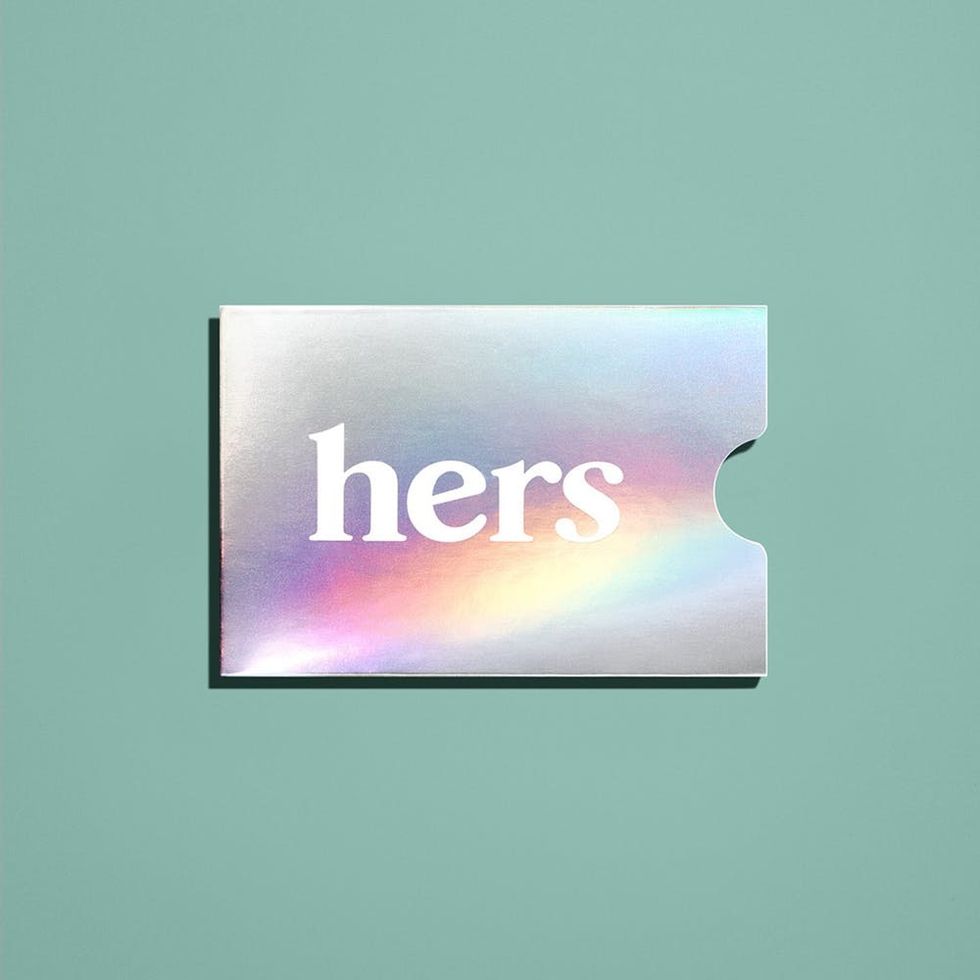How recent legal tweaks in telemedicine have revolutionized the way many American women access contraception.
Born of Convenience, Online Birth Control Providers Are Also Bridging Widening Accessibility Gaps

Shopping for a mattress wasn’t always cool, but then there was Casper. Glasses were a necessary and expensive accessory until Warby Parker came along. Over the past decade, an endless number of otherwise basic goods have become unexpectedly hip thanks to a trifecta of modern branding, slick websites, and most importantly, the ability to seal the deal from the comfort of your own home — or office, or the subway, or literally anywhere with access to the internet. Now entering the club of “boring necessities turned cool” is the somewhat complicated world of birth control pills.
This past November, New York City subway passengers were introduced to hers: a new, one-stop shop for women’s health and personal care. In one of the ads, a woman holds up a pack of birth control. Many a passerby probably didn’t even realize that’s what it was, its purpose alluded to only by the rectangular shape and the semi-circle edge that’s become something of a trademark for this type of contraception. With a quick glance, hers’ birth control packaging could easily pass for the box of something like a new Glossier eye shadow palette. Head to the website, and hers hits you with yet another surprise: This birth control is available without an in-person visit to the doctor.

hers takes home the first-impression rose among virtual birth control providers, for sure, but that’s not to say it’s the first company to allow patients to place a birth control prescription via the internet. Brands like Nurx, TwentyEight Health, and Favor are just a sampling of the dozen or so companies that will ship a new pack to your door every month. The Pill Club even sends every customer their monthly order in what the company calls a “care package.” Each delivery comes accompanied by samples of chocolate, tampons, condoms, and stickers. A new pack of birth control becomes an anticipated arrival.
WHY NOW?
Nick Chang, the CEO of Favor (previously The Pill Club), credits his company as the country’s first online birth control prescription and delivery service. Prior to starting the company in 2016, Chang frequently worked with Planned Parenthood and other family planning clinics throughout the Bay Area, where he noticed that a prescription for oral contraception was one of the most popular reasons patients came in for a visit.
“I thought, ‘There’s got to be a better way to do this,'” he tells us. “There’s got to be a better infrastructure out there, and [at the time] there wasn’t. Amazon wasn’t touching it, no one was touching it. I figured there’s probably a lot of complexity involved, and sure enough, there was.”
Historically, a doctor’s ability to prescribe something like birth control to an online patient has been heavily restricted across the United States. States tended to view remote physician-patient relationships as inadequate for treatment. However, over the past decade — around the same time that Chang began pioneering his new business — a slew of progressive telemedicine legislation passed, finally peeling back some of the red tape that stifled the industry for so long.

The founders and executive staff of all three birth control companies we spoke to (Favor, hers, and TwentyEight Health) credit those changes in telemedicine law as the catalyst for allowing their businesses to bloom. In 2014, only 21 states offered some form of telemedicine reimbursement through private insurance companies. Today, that number has increased to 42 states (plus DC). While patients could certainly opt to pay out-of-pocket for virtual visits before these changes took place, reimbursement from insurance companies helps to both normalize the practice and incentivize doctors to take part.
Dr. Raquel B. Dardik, MD, an obstetrician-gynecologist at NYU Langone Health, explains, “About five years ago, if I did a telemedicine visit, I would not get paid. The requirement from insurance was that you had to do an in-person visit to get paid. There was no incentive. No doctor wants to see 10 patients virtually and get zero payment.” Today, NYU has its own form of virtual urgent care and is also partnering with its emergency department physicians to figure out how it can bring more telemedicine options to its women’s health department.

Even though a flurry of change is happening in the telemedicine world, policies vary widely from state-to-state, making it nearly impossible to keep track of what’s allowed where. This is where things can get complicated for both the companies looking to offer the pill online and the customers interested in buying it.
Doctors can now be reimbursed for virtual appointments in 42 states (plus DC) through private insurance — and in 49 states (plus DC) through Medicaid — but that doesn’t mean doctors in all those states have the ability to write birth control prescriptions for online patients. Only certain states currently allow for that. If you don’t live in one of those states, you will still need to visit a doctor in-person to acquire an oral pill prescription before transferring it over to somewhere like Favor's pharmacy. (For a detailed breakdown of which companies are able to deliver where, Free the Pill has a useful chart.)
BRINGING ACCESS TO CONTRACEPTIVE DESERTS
It feels easy to brush off the emergence of these brands as another millennial-induced convenience, but the need goes far beyond saving busy women some time. For the 19 million American women currently living in “contraceptive deserts” (areas across the US where there is less than one public clinic or provider for every 1,000 women in a county), these services are a lifeline.
Just look to Texas, home to one of the most expansive clusters of “contraceptive deserts” in the US. Currently, 35 percent of the state’s population lives at least a 30-minute drive from the closest public clinic. Additionally, out of the state’s whopping 254 counties, 92 have no publicly funded clinics that offer birth control — a residual consequence of years of state legislation that significantly reduced funding for family planning services through increased restrictions on abortion clinic operations. Because of this, Texas has emerged as one of the largest markets for online birth control delivery. For these women, the ability to have a prescription filled online and delivered straight to their door isn’t just convenient; it might be their only option.
The popularity of these services in places like Texas and similarly rural areas across the country doesn’t surprise many online birth control delivery founders and execs. In fact, it’s exactly the issue they’re hoping to solve. Hilary Coles, the brand lead at hers, explains, “If there is nothing within driving distance and there’s no form of support, we aim to use our telemedicine and platform to bridge those gaps.”

Echoing Coles, Favor’s Chang tells us, “The reason I wanted to start this company is to really empower women to make health care decisions for themselves. I wanted them to not be limited by logistics, privacy, or education. Those have been some of the driving moments for me in starting this company.”
The companies’ shared mission of accessibility often extends beyond simply providing a product. Each brand’s website contains an astonishing amount of easy-to-understand, educational content about reproductive health. On hers’ blog (which it refers to as “Savoir Vivre”), you’ll find articles on everything from a breakdown of common birth control side effects to the lowdown on smoking while taking birth control. There’s even a piece on how to deal with mismatched libidos.
Bruno Van Tuykom, the co-founder of TwentyEight Health (which just launched in late 2018), says that the educational aspect of the brand is where he hopes his company can really shine. “If somebody comes on our education platforms and is like, ‘Birth control pills are not for me,’ that’s great. That’s actually what we want,” he says. “Our focus is on education and access for young women who need it the most.”
OKAY, BUT HOW DOES IT ALL WORK?
According to Chang, over 70 percent of women who visit Favor’s website arrive without an active prescription. Forty percent of them have never been on birth control before. For those women, the initial process for signing up is more or less the same across all online the sites: First, you enter your address. If the site you’re visiting cannot prescribe in your state, you’ll receive an alert and will have to then find a different site that can.
If you do live in a state that the company you’ve selected can deliver to, you’ll be asked to fill out a questionnaire centered mainly around your medical history. Once you submit, that questionnaire it’s sent to a doctor who will review it and prescribe the birth control they recommend. If you already have an existing birth control prescription, you can specify which brand you’re looking for.
Favor’s process can differ slightly from its competitors here because it operates its own pharmacy, which in turn, allows the company to ship to some states where online prescriptions are still not available. To receive birth control delivery from Favor in those states, you’ll need to first acquire a prescription from a doctor in-person and then send that prescription into Favor. If you already have an existing prescription, you can send it in right away to start getting the pill delivered.

One thing all the companies have in common is the option to schedule a call or an online chat with a doctor to clarify any questions or concerns either before or anytime after you’ve received your prescription. This step is crucial to the ethos of all these brands. Chang tells us, “There are 18 different categories and varieties of different estrogen-progesterone combinations for birth control, many with different side-effect profiles. Being able to have faster feedback loops between a patient saying, ‘I’m experiencing this,’ and a doctor saying, ‘Okay, that’s normal, that should pass,’ or, ‘We need to change that immediately,’ is one of the great benefits of our model. The Holy Grail of health care is personalized medicine. ”
NYU’s Dr. Dardik echoes a similar sentiment when asked if ordering birth control online poses any health concerns. Dardik says, for the most part, ordering the pill through an online delivery service is safe. However, she emphasizes the importance of a conversation between the patient and the doctor during the prescribing process or shortly after.
“To really get the best contraceptive option for you, there has to be a little bit of a back and forth,” she says. “I don’t necessarily think it has to be face-to-face.”
LET’S TALK MONEY
The pill delivery company you opt for really comes down to two deciding factors: Where you live and whether or not you want to use insurance. At hers, insurance is not accepted — a move the company describes as an effort to make the oral pill “accessible to all without any additional roadblocks.” With each monthly shipment coming in at $30 a month, it’s not the most affordable option of the bunch, but if you want to ditch the potential complexities of going through insurance and you put a premium on great branding, it’s a solid option.

Favor, however, does accept most insurance providers. Chang estimates that 80 percent of his company’s patients “don’t have to enter a credit card,” meaning their prescriptions are fully covered. If you are paying out of pocket on the site, the cost is significantly less here than at hers: $15 for a single pack or $20 for two packs, on average.
At TwentyEight Health (which currently only serves women in NY and NJ), insurance is also accepted with similar out-of-pocket costs to Favor Van Tuykom says TwentyEight Health is also working to get out-of-pocket costs eliminated entirely for any uninsured women who can’t afford it.
“Our vision is to get to a point where low-income people get it completely for free on TwentyEight,” he says. “We partner with nonprofits who will basically pay on their behalf even if they don’t have insurance.”
WHERE DO WE GO FROM HERE?
Behind the scenes, the logistics of acquiring a birth control pill prescription through the internet are still incredibly complicated and will likely remain that way for years to come. But ultimately, that’s more of a woe for providers than consumers. The changes in the telehealth industry over the past decade have resulted in an unprecedented buffet of online birth control options for women across the country, some who previously had nowhere to turn.
Despite the turbulent state of women’s reproductive health under the nation’s current political administration, it’s both encouraging and comforting to see companies like Favor, hers, and TwentyEight Health emerge and thrive. Right now, their existence almost feels like a quiet form of rebellion, an internet loophole, a secret amongst those in-the-know. At the same time, they offer an optimistic vision of what the future of women’s health could be if service providers had the legislation and resources they needed to flourish. Perhaps these companies are a sign that we’re on the cusp of finally becoming a nation where women’s reproductive health care is human, technologically-advanced, and most novel of all: accessible.
Photos courtesy of hers and Favor. Design by Casey Callahan.


















